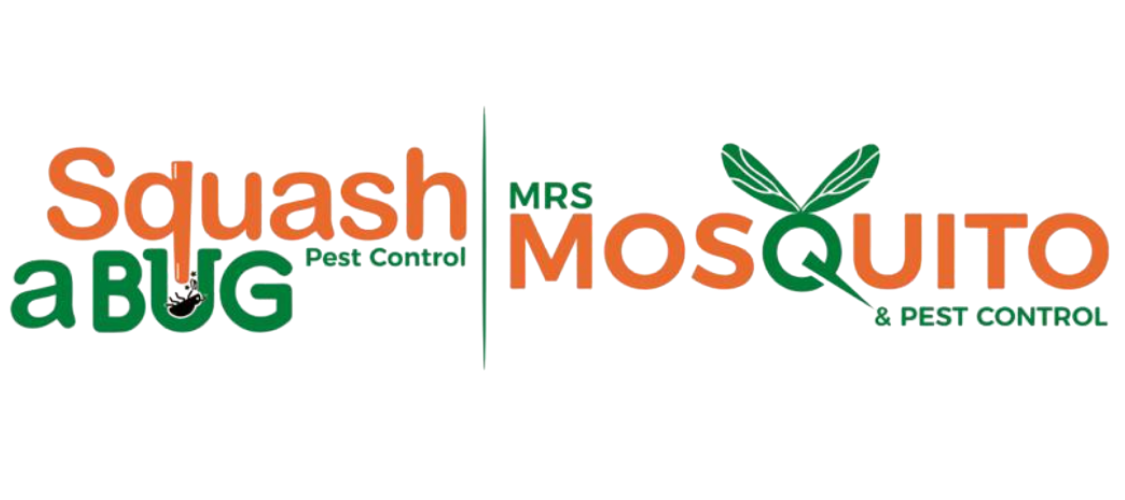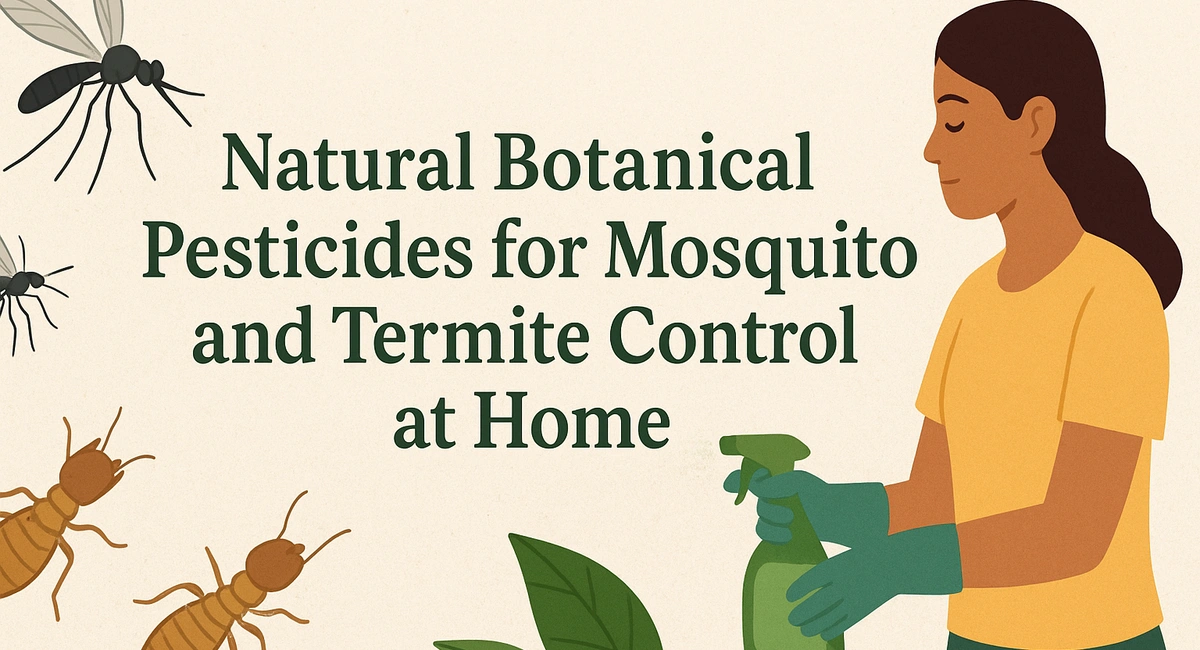Keeping mosquitoes and termites away from your home doesn’t always require harsh chemicals or synthetic sprays. With growing interest in safer, eco-friendly options, more homeowners are turning to natural mosquito repellent and botanical termite control methods. These plant-based pest solutions not only work effectively when used correctly, but they also keep your living space healthier, especially if you have pets or children around.
If you’re already aware of the most common home pests in Georgia and Florida, you’ll know mosquitoes and termites rank high. While professional pest control can help manage bigger infestations, there are smart, nature-based ways to protect your space consistently.
Why Natural Pest Solutions Are Making a Comeback
Chemical sprays can harm beneficial insects, leave behind residue, and cause long-term environmental damage. Over time, pests may even become resistant to synthetic treatments. Natural and botanical options offer a sustainable solution that targets pests without disturbing the ecosystem inside and around your home.
These solutions often use ingredients derived from plants that pests have evolved to avoid. For example, mosquitoes hate the smell of certain essential oils, while termites are repelled or killed by some plant extracts.
Unlike chemical sprays, natural repellents and treatments often serve multiple roles: pest control, air freshening, and in some cases, even mild antibacterial benefits.
Plant-Based Pest Solutions That Work
When it comes to deterring mosquitoes and termites naturally, a few standout options consistently deliver.
Natural Mosquito Repellents
1. Citronella Oil
- Commonly used in candles, sprays, and diffusers
- Derived from lemongrass
- Strong scent masks human odors that attract mosquitoes
2. Lavender Oil
- Has a calming aroma and doubles as a skin-safe mosquito deterrent
- Best applied diluted on exposed skin or used in room sprays
3. Peppermint and Eucalyptus Oil
- Strongly disliked by mosquitoes
- Also acts as a general insect repellent
4. Neem Oil
- Known for its bitter scent that repels mosquitoes
- Can be mixed with coconut oil and applied to the skin
5. Basil and Rosemary
- Easy to grow in pots or garden beds
- Their aroma helps keep mosquitoes at bay when placed near entrances and windows
If you’re dealing with mosquitoes during the warm seasons, especially in states like Georgia, it’s also helpful to review some effective summer pest control tips for Georgia.
Botanical Termite Control Options
1. Orange Oil
- Contains d-limonene, a compound toxic to termites
- Applied directly to termite colonies in wood
2. Clove Oil
- High in eugenol, which is toxic to termites upon contact
- Can be sprayed on infected wood or suspected zones
3. Vetiver Grass
- Naturally resists termites
- Ideal for planting around the foundation of your home
4. Garlic and Cayenne Sprays
- Used as a soil treatment around the house
- Repels subterranean termites from nesting
5. Aloe Vera Extract
- Contains natural antifungal and termite-repelling compounds
- Still under research, but has shown promise as a preventive solution
If you suspect termite activity, it’s wise to familiarize yourself with the early signs of termite damage before choosing your natural approach.
How to Use Botanical Repellents at Home
Natural pest control works best when integrated into your daily routine. Here’s how you can make it part of your lifestyle:
- Place potted mosquito-repelling herbs near doors, windows, and outdoor seating areas
- Spray diluted essential oils around baseboards, under furniture, and near entry points
- Use oil diffusers in bedrooms and living rooms to create a mosquito-repelling zone
- For termites, apply essential oil blends like orange and clove to wooden surfaces, beams, and crawl spaces
- Keep mulch and woodpiles away from the foundation of your home
- Regularly inspect moisture-prone areas like basements and crawl spaces
If you live in a region with increased summer pest activity, especially in the southeast, understanding Acworth’s biggest pest threats during summer can help you time your treatments effectively.
Combining Prevention and Botanical Treatments
Botanical solutions are most effective when paired with good home maintenance practices. Here are a few more tips to improve your pest defense naturally:
- Seal cracks and gaps around doors, windows, and utility entry points
- Fix leaky faucets or pipes, as both mosquitoes and termites are attracted to moisture
- Clean gutters regularly to prevent stagnant water buildup
- Avoid storing cardboard boxes or untreated wood directly on the floor or against walls
You can also read about common rodent entry points in homes since many of the same strategies help in keeping other pests like termites out.
Do Natural Solutions Really Work?
The answer is yes, with consistency. Botanical solutions won’t provide instant elimination like a professional fogger, but they do repel, kill on contact, and create an environment where pests are less likely to thrive. This is especially helpful for homes in regions prone to year-round infestations.
However, if you’re facing a severe issue, it’s worth consulting with professional services to set a baseline, then maintain it naturally. Pairing professional termite and mosquito services with daily natural deterrents offers the most balanced, long-term protection.
Trending FAQs on Botanical Pest Control
What’s the best plant to repel mosquitoes on a patio?
Citronella grass, basil, and lavender are all excellent choices. Keep them in pots for mobility.
Can I use essential oils for indoor termite prevention?
Yes. Clove and orange oil can be applied to wooden furniture and baseboards to repel termites.
Are natural repellents safe for pets?
Most essential oils are safe when used in diluted form and not ingested. However, avoid tea tree and eucalyptus oils around cats.
How often should I apply natural sprays?
Most need to be reapplied every 2–3 days or after cleaning or spraying the area with water.
Do these work in humid states like Florida?
Yes, but more frequent application might be necessary due to faster evaporation and stronger pest pressure.
Final Thoughts
Natural mosquito repellent and botanical termite control aren’t just trends. They are part of a larger move toward healthier, chemical-free homes. With the right plants, oils, and prevention methods, you can manage pest problems without putting your family or environment at risk.
Natural pest control is especially effective when you understand how different pests behave across seasons. If you’re managing a mix of issues in your home, explore the benefits of using a pest control calendar to stay ahead of infestations naturally.
By choosing plant-based pest solutions, you not only reduce your chemical footprint but also support a more sustainable and comfortable way of living.
Let nature do the work. Just give it the right tools.
Protect Your Home Naturally with Squash A Bug
Natural mosquito repellents and botanical termite treatments are more than just eco-friendly alternatives—they’re effective, safe, and sustainable ways to keep your home pest-free. By integrating these plant-based solutions into your daily routine and pairing them with good home maintenance, you create an environment pests won’t want to invade.
Ready to take control of your home the natural way? Visit our website at Squash A Bug today to explore our range of natural pest control products, get expert advice, and start protecting your home safely and effectively. Let nature do the work, and let us help you keep your living space healthy, comfortable, and pest-free.



